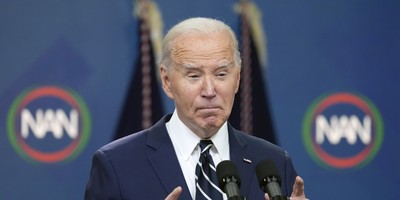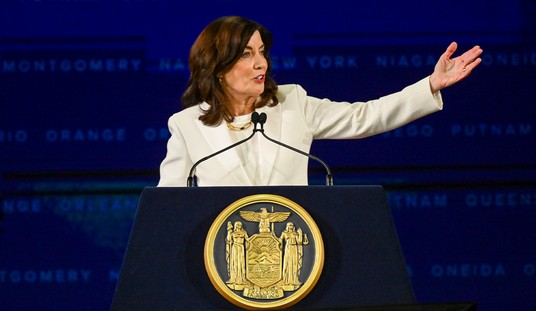Years ago, when I was a Media Fellow at the Hoover Institution at Stanford University, I got to sit down with Martin Anderson, one of Ronald Reagan’s closest advisers.
We were discussing what happened at Reykjavik, Iceland in 1986, when Reagan met with Soviet leader Mikhail Gorbachev. The two men left without an arms treaty after discussing ways to reduce ballistic missile arsenals. There was even talk, as today, of eliminating nuclear weapons entirely.
“Why,” I asked Anderson, “when we held the upper hand, did Reagan allow such apparent parity?”
Anderson smiled at my question, and said something along these lines: “Look, that was for the press. I was with Reagan, and let me tell you, it was brutal. Behind closed doors, Reagan stiff-armed Gorbachev.”
Anderson went on to relate that Reagan warned his counterpart that the U.S. was so far ahead technologically that the Soviets would go bankrupt if they tried to match us. The Strategic Defense Initiative (SDI) and growing computer gap was simply too much for the U.S.S.R’s doddering socialist economy. But Reagan had to save Gorbachev some face, so they let the press make it appear that the two sides left the table as equals.
In December 1987, the U.S. and Soviets signed the Intermediate Range Nuclear Forces Treaty, but the U.S. continued to work on SDI. This anti-ballistic missile program was better known to the public as “Star Wars,” thanks to the liberal media’s miscalculation that the public would find it silly. But Americans loved the cinematic Star Wars saga of good versus evil, and they loved Reagan’s description of the Soviets as “the Evil Empire.”
Recommended
Five years after Reykjavik, the Berlin Wall fell and the Soviet empire crumbled during the first Bush presidency. The events followed a script that Reagan had crafted years earlier.
In 1977, Reagan had a conversation in Los Angeles with Richard V. Allen, who later became Reagan’s first National Security Advisor. In a Hoover Digest article in January 2000 entitled “The Man Who Won the Cold War", Allen recalled Reagan telling him: “My idea of American policy toward the Soviet Union is simple, and some would say simplistic. It is this: We win and they lose. What do you think of that?”
Allen acknowledged being surprised that someone who might become president would suggest outright victory instead of managing the relationship. But unlike the current occupant of the White House, Reagan believed in American exceptionalism and saw through the false promises of socialism. He thought we could win.
Containment had been U.S. policy toward communism since World War II, but Reagan did not concede this stalemate. Instead, he crafted the Reagan Doctrine of rolling back communism. Beginning with liberating the island nation of Grenada in 1983, he “stiff-armed” the communists until they cried uncle. This outraged the Left, whose mantra is that their triumph is inevitable and that any ground they conquer, they keep. And they are shameless about it.
On Feb. 1, The New York Times editorial board called federal Judge Roger Vinson’s ruling against Obamacare a “breathtaking example of judicial activism.” Isn’t it fun when liberals decry “judicial activism?” It’s like Eminem complaining about someone exclaiming “darn!” in his presence.
In the decision, Vinson rightly reminded Congress that the Constitution gives them no authority to force people to purchase health insurance. When leftist decisions are hatched from “penumbras” and “emanations,” they instantly become “settled law.” By contrast, when rulings are grounded in the Constitution’s actual written word, well, that’s “judicial activism.”
Liberals are still peddling the notion, even after the Great Shellacking, that America loves the health care takeover, loves trillions in new spending, loves radical social engineering such as queering the armed forces, and just wants to “move on,” as Harry Reid says.
No, they want to roll things back to some degree of normalcy. February 6 marks the Gipper’s 100th birthday. I think it’s obvious that Reagan would have been right at home in the Tea Party movement, which is applying his rollback strategy to bloated government. The Tea Parties are not interested in “making government work better.” They want less of it, period.
As the business-as-usual Beltway crowd tries to temper and divert the Tea Party’s energy into merely “fixing” the health care bill instead of repealing it, and balancing the budget with more taxes – which only feeds the monster – the Tea Party needs to stick with its Reaganesque commitment to rollback.
Given the stakes, it wouldn’t hurt to throw in “we win, they lose,” either.

























Join the conversation as a VIP Member